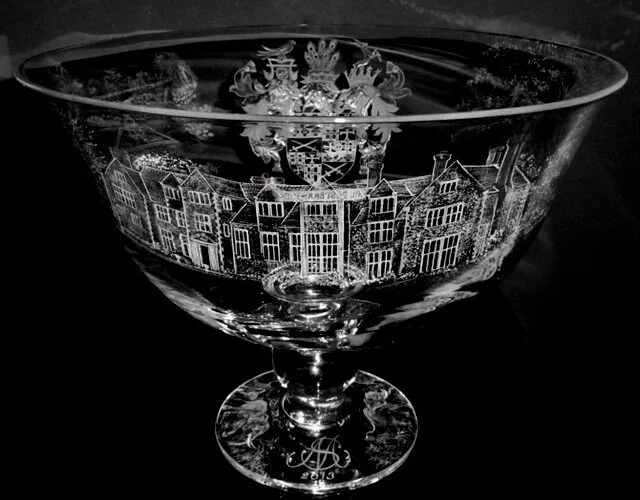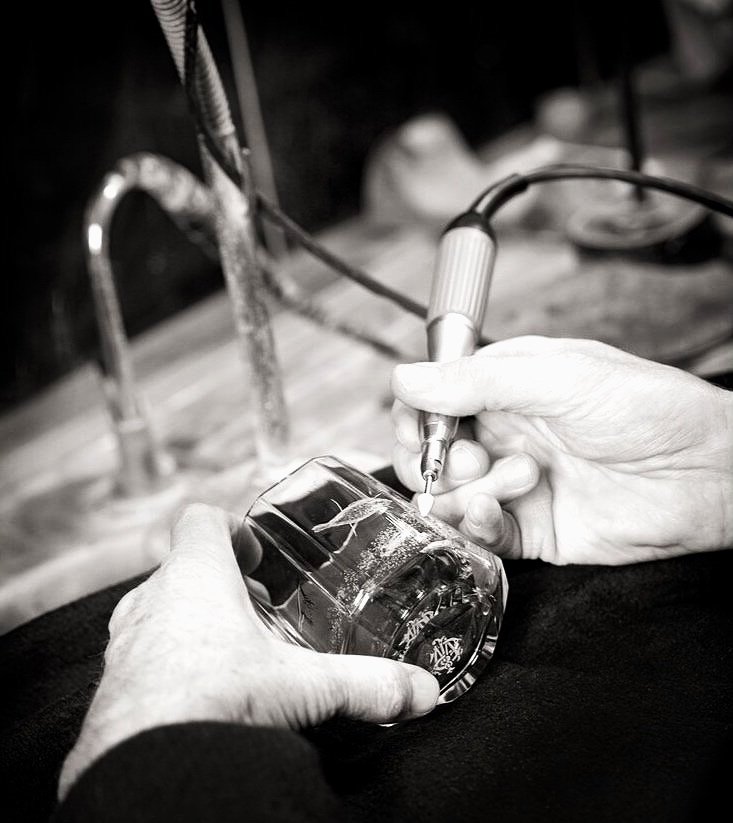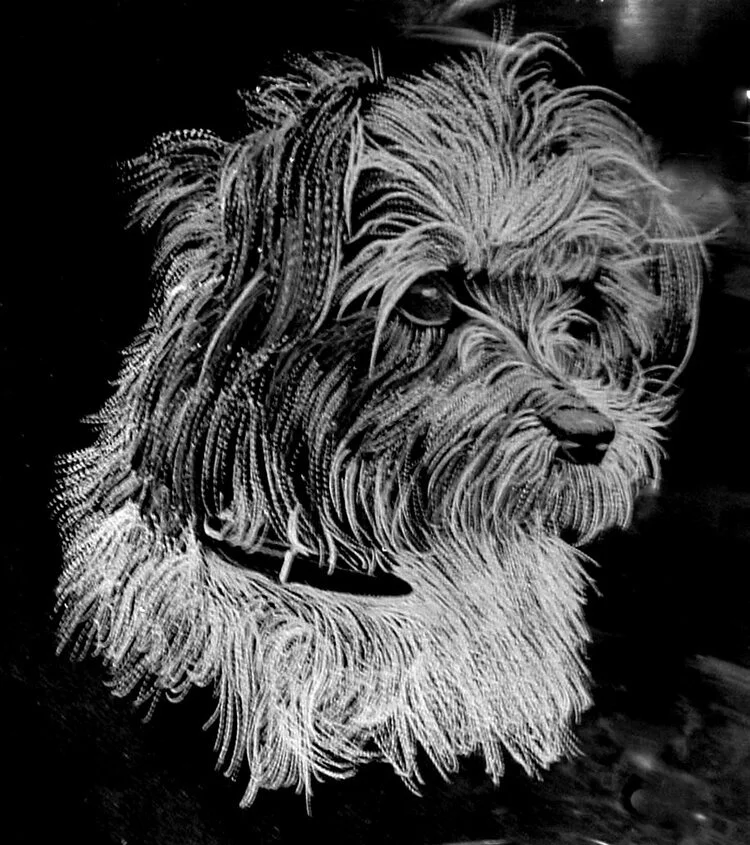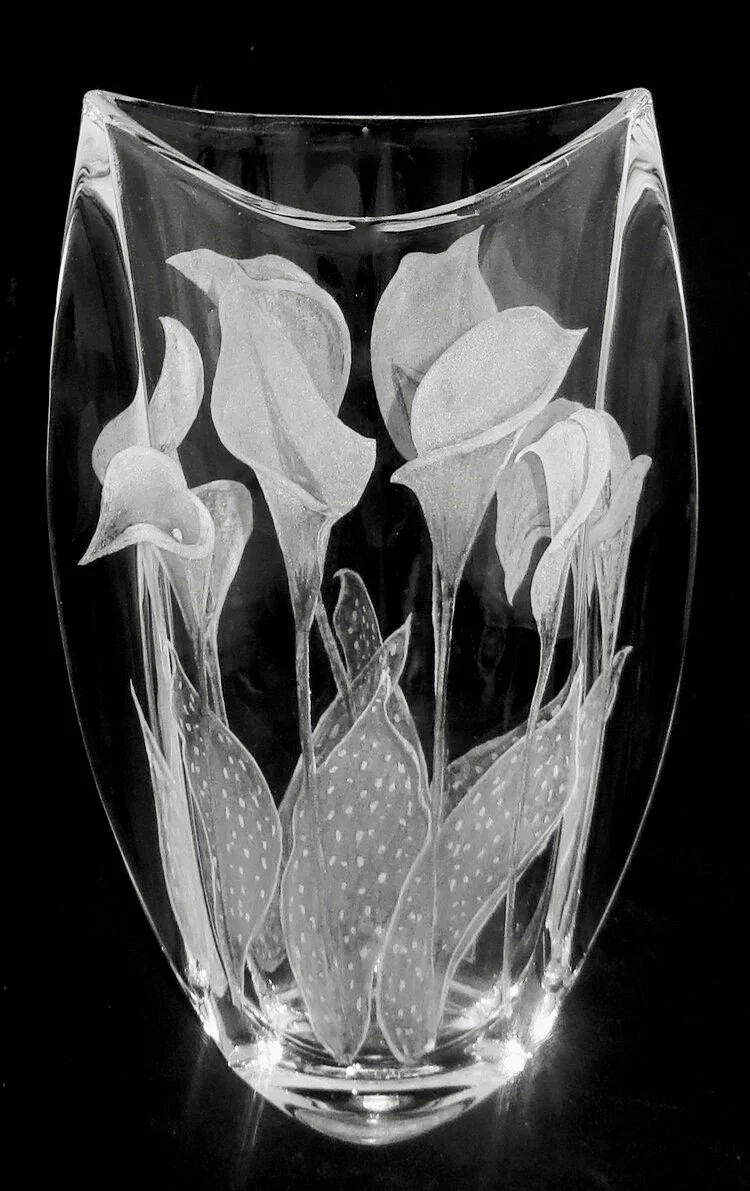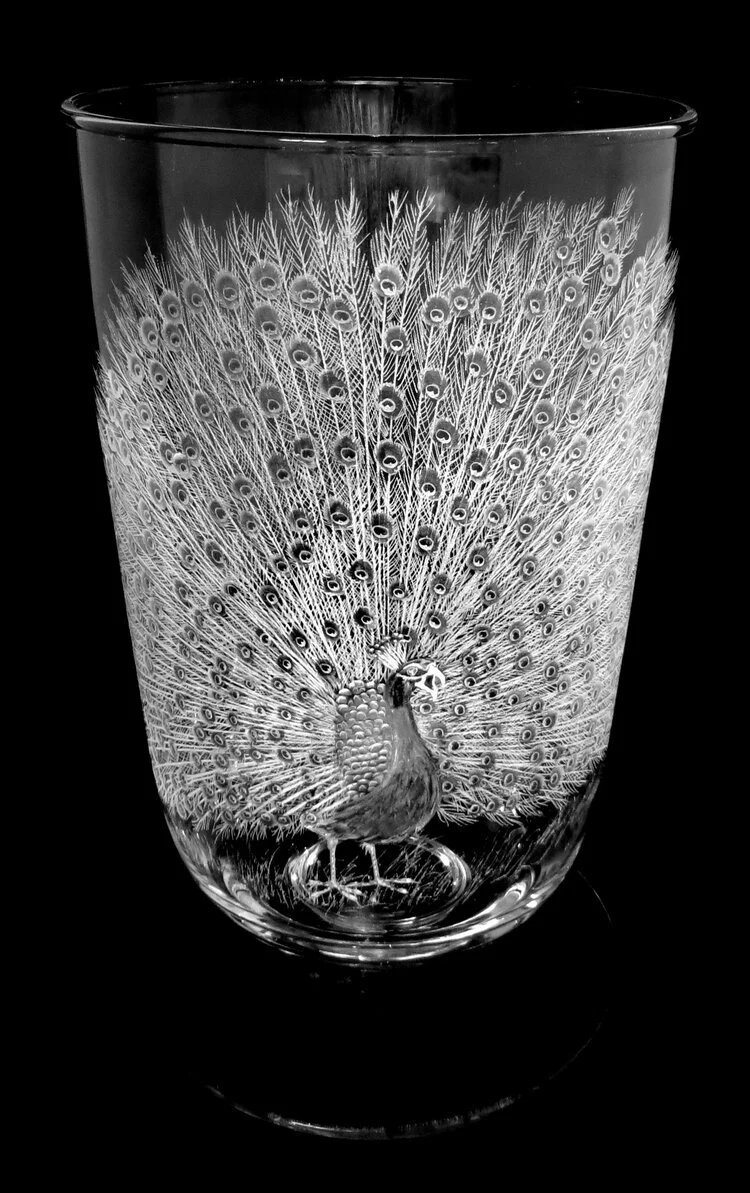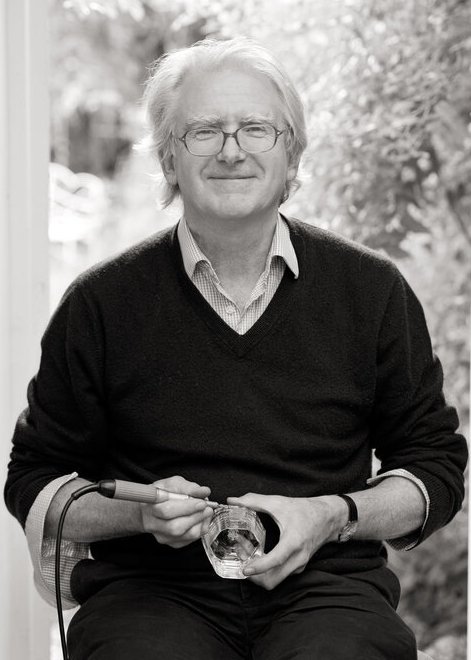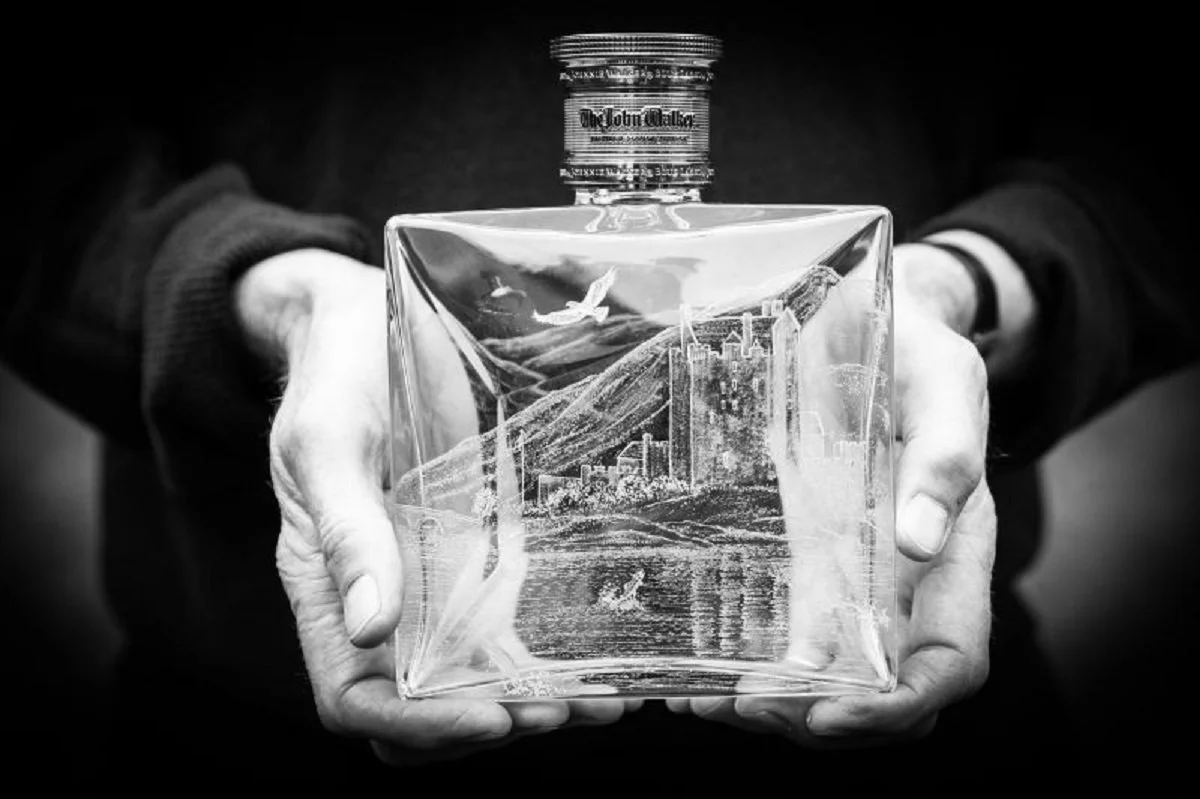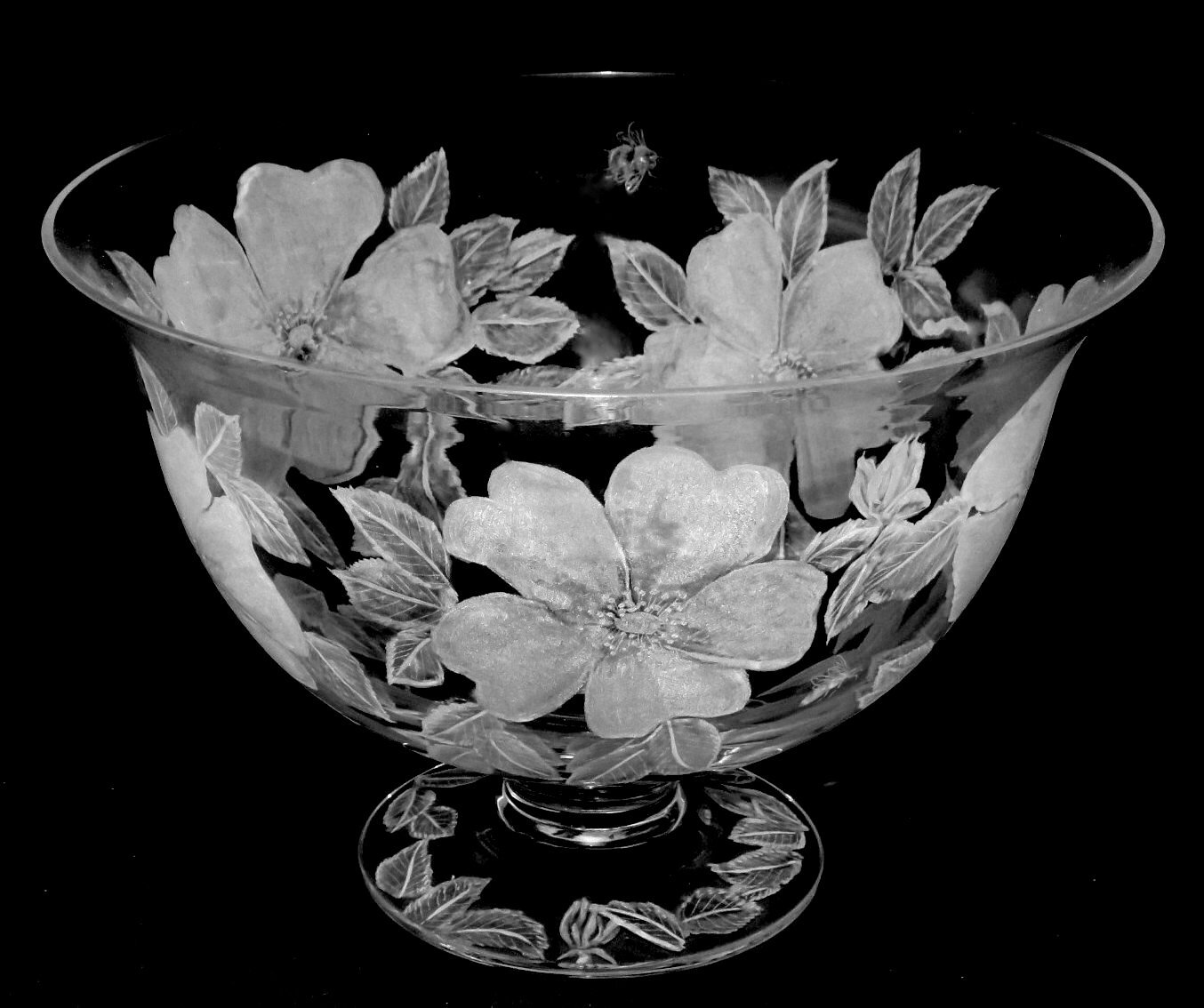Philip Lawson Johnston: Glass Is His Canvas
Philip Lawson Johnston holds the distinction of Specialist Hand Engraver of Glass By Appointment to Her Majesty The Queen, and is considered one of the most influential glass hand engravers in the world.
The British master craftsman could have joined the family food and beverage production business like his older brothers. Instead, he opted to take the road less travelled.
“I was 20 at the time,” says Philip, the youngest of five siblings. “Ahh… I managed to fail my art A levels… I’d never really thought of glass or engraving before. I’d never heard of it before.”
It was almost as if glass engraving “chose me” when he was looking for something to do with his life and wasn’t at all sure what that should be.
“I had virtually no qualifications, but had an idea I would like to do something in the art line. My mother met someone who engraved glass and thought it might suit me. It took a while for her to persuade (nag) me to do something about it and when I eventually did I thought it worth a try. That was it. That was 1971, 51 years ago and I’ve never done anything else,” recalls Philip, who never received any formal art training other than art classes when he was young.
There was virtually no one teaching the craft when he started so an apprenticeship wasn’t possible. “Therefore, I taught myself by trial and error, (scratch and break!). As to when I mastered my craft, I would have to say that I am still learning and will continue to do so.”
Glass hand engraving has been an art form for centuries dating back to Roman times. But we don’t see many hand-engraved glass art displayed in museums although they are just as aesthetically exquisite as paintings, sculptures, pottery and calligraphy.
Not to be confused with glass art (refers to moulding and blowing glass) and etching (uses acidic, caustic, or abrasive substances to achieve artistic effects), glass engraving involves an artist working on an already existing glass surface – champagne flute, beaker, whisky glass, decanter, flower vase, mirror, window, door – to inscribe intricate visual motifs and patterns.
“My intention is to create on glass designs that not only are pleasing to the eye and accurate in what they portray, but also reflect in some way the care and attention to detail of the Creator, as observed in the world around us,” says Oxford-based Philip.
Many consider glass hand engraving to be a dying art form, and specialist hand-engravers are a disappearing breed, but there is hope.
“Certainly in the UK and Europe, over the last forty or so years there has been a large number of people taking it up. A guild was formed in the 1970s which has been encouraging many,” he says, estimating about 1,000 – 2,000 members of the UK guild of glass engravers, counting both full time practitioners and part-time hobbyists.
“I would encourage anyone to give it a go, particularly if they have interest in detailed work with a sculptural element to it. There is an advantage in that there aren’t as many glass engravers as artists in other fields, so less competition. You have to have a steady hand!”
A glass hand engraver’s canvas is the glass. The better the quality of the glass the easier it is to engrave it, lead crystal particularly.
“Sadly, many of the traditional high-quality glass makers no longer exist, so one is reliant on what is available, much of which is designed well – good shapes etc – but are made out of lesser quality glass. Otherwise, one can have it specially made to design, at a greater cost of course,” says Philip, an Associate Fellow of the Guild of Glass Engravers.
When asked how long it takes to complete a piece he says it totally depends on what the subject is and how much engraving is involved.
“Something simple can be done within an hour, whereas something large, such as a door or window, can take a matter of days. Most things though can be done within one or two days,” says the man who works alone.
I had the rare opportunity to partially see Philip at work in Singapore, where he was commissioned to hand-engrave 25 Baccarat bottles, a one-time-only release limited edition in collaboration with Johnnie Walker House to commemorate Singapore’s 50th anniversary. The ornate designs were symbolic of Singapore’s iconic landmarks including Raffles Hotel and the Super Trees and Flower Dome at Gardens By The Bay.
“I completed exactly 25 bottles in five days. I couldn’t afford to shatter any glass (made of Baccarat crystal), ” he says. 24 of the SG50 tribute decanters were sold at S$65,000 each. Bottle No. 25, which carries additional unique features engraved by Philip, was sold in a silent auction.
“The beauty of these creations lies in the intricate details – where no two pieces are engraved the same,” says Philip, who has a studio at home.
Philip has been recognised for impeccable glassworks including a Royal Warrant to be Hand-Engraver of Glass to Her Majesty The Queen (2009), and the Silver Artist Award 2014 at The David Shepherd Wildlife Foundation, Wildlife Artist of the Year Exhibition.
One of his most distinct and distinguished body of work was hand-engraving 122 whisky glasses (two glasses complemented each of the 60 bottles released to the public) to commemorate Queen Elizabeth II’s 60 years reign during The Queen’s Diamond Jubilee in 2012. The glasses featured renditions of the rich wildlife that inhabits the Queen’s Balmoral and Sandringham estates. An extra pair for the one bottle was given as a present to Her Majesty.
“I have no intention of retiring … as long as I have hands that work, eyes that see,” says Philip. He is hopeful that the art of glass hand engraving would continue, citing his nephew, Giles, who took it up after his father (Philip’s older brother) who was also a glass hand engraver) passed away.
“Giles literally picked up my brother’s equipment and started to teach himself. Due to distance, I can only encourage and occasionally answer questions. He is doing very well and without a doubt has a serious talent for it.”
Philip encourages anyone to try any number of different media in art until they find the medium that suits them, the thing that really ‘turns them on’.
Debbie | ws
Images: www.glassengraver.net | Instagram @theglassengraver | Contact: plj@glassengraver.net

